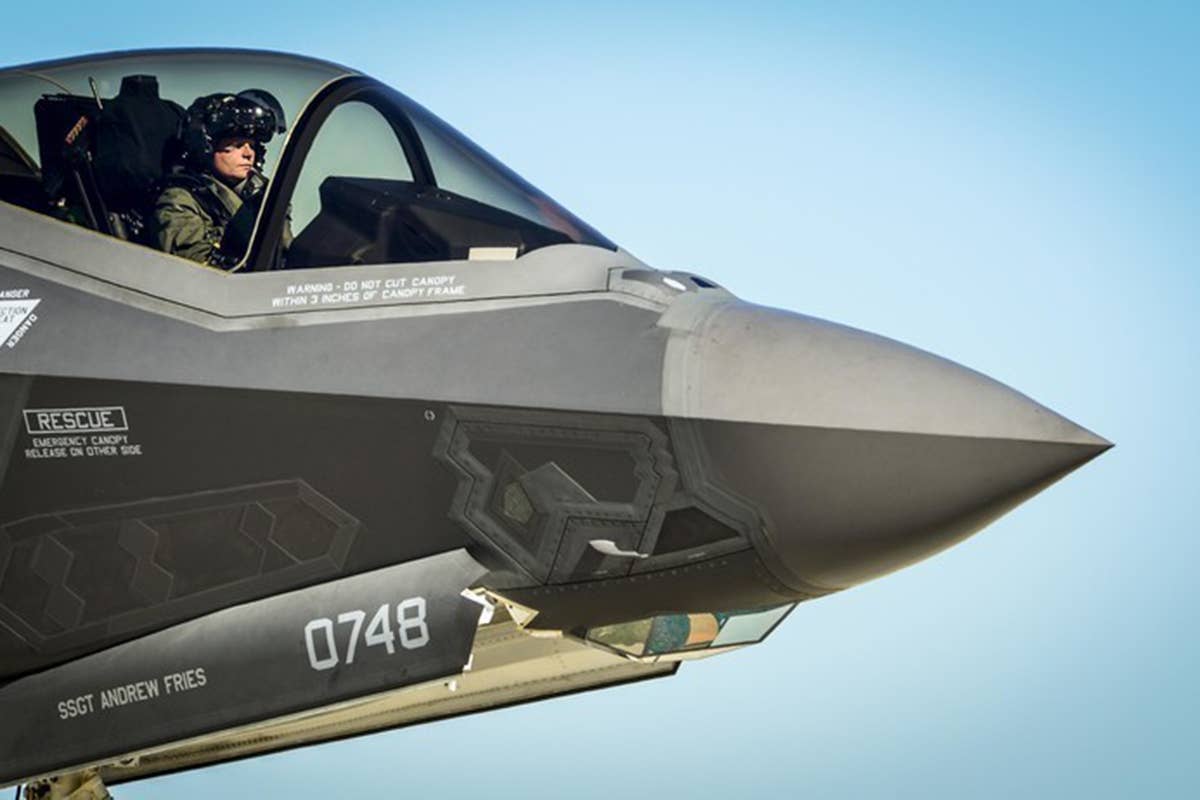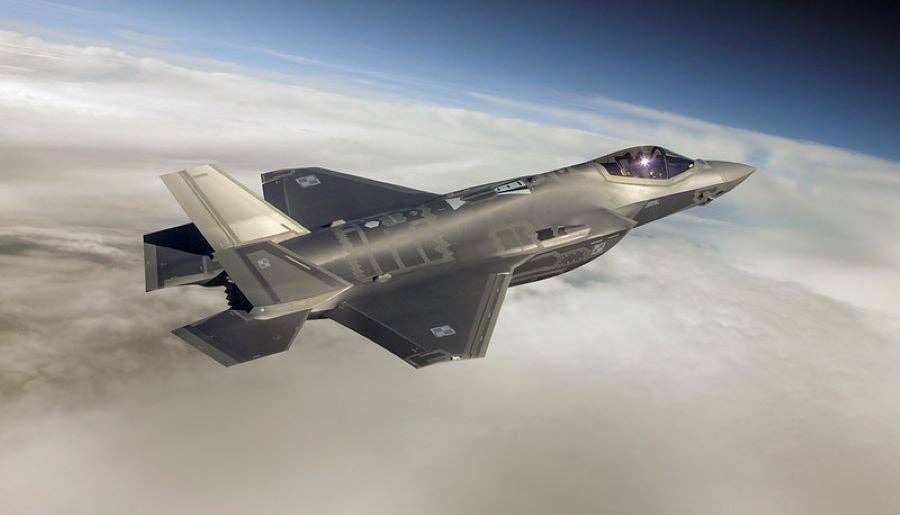F-35As Resume Operations After Stand Down for Ejection Seat Inspections
Out of 706 ejection seat cartridges inspected, four were deemed suspect and replaced, the Air Force said.

The Air Force, along with the Navy and Marine Corps, announced last month it had grounded the fighters out of an ”abundance of caution.” [Courtesy: USAF]
All U.S. Air Force Lockheed Martin (NYSE: LMT) F-35A Lightning II fighters have returned to normal operations following a temporary stand down triggered by concerns about faulty ejection seat parts, the Air Force told FLYING Tuesday.
Out of more than 700 cartridges inspected in F-35s, only four were found to be suspect, the Air Force said.
The Air Force, along with the Navy and Marine Corps, announced late last month it had grounded the fighters—along with hundreds of T-38 Talons and T-6 Texan IIs—out of an ”abundance of caution" because of the potential defect in cartridge actuated devices (CAD) used to initiate ejection seats.
The devices are used in ejection seats manufactured by Martin-Baker Aircraft Co. Ltd., which notified Naval Surface Warfare Center Indian Head Division (NSWC IHD) of the potential defect. NSWC IHD provides the devices for Army, Air Force, Navy, and Marine Corps aircraft.
"The Air Force has completed the Time Compliance Technical Directive on all F-35 ejection seat initiator cartridges, with a few exceptions, and all aircraft have resumed normal operations," Air Force Air Combat Command spokesperson Alexi Worley told FLYING.
"Across the Air Force, technicians inspected a total of 706 cartridges, which came from a majority of the Air Force's 349 F-35s as well as additional supply," Worley said. As a result, four cartridges were considered suspect, and were replaced.
"Those four suspect cartridges have since undergone further inspection and were determined compliant," she added.
Concern over the possible defect also prompted the Air Force’s Air Education and Training Command (AETC) to ground 203 T-38 supersonic jet trainers and 76 single-engine T-6 Texan II primary trainers used for Air Force Undergraduate Pilot Training (UPT) until safety inspections can be performed.
Those inspections are still ongoing, an AETC spokesperson said Tuesday.

Subscribe to Our Newsletter
Get the latest FLYING stories delivered directly to your inbox






